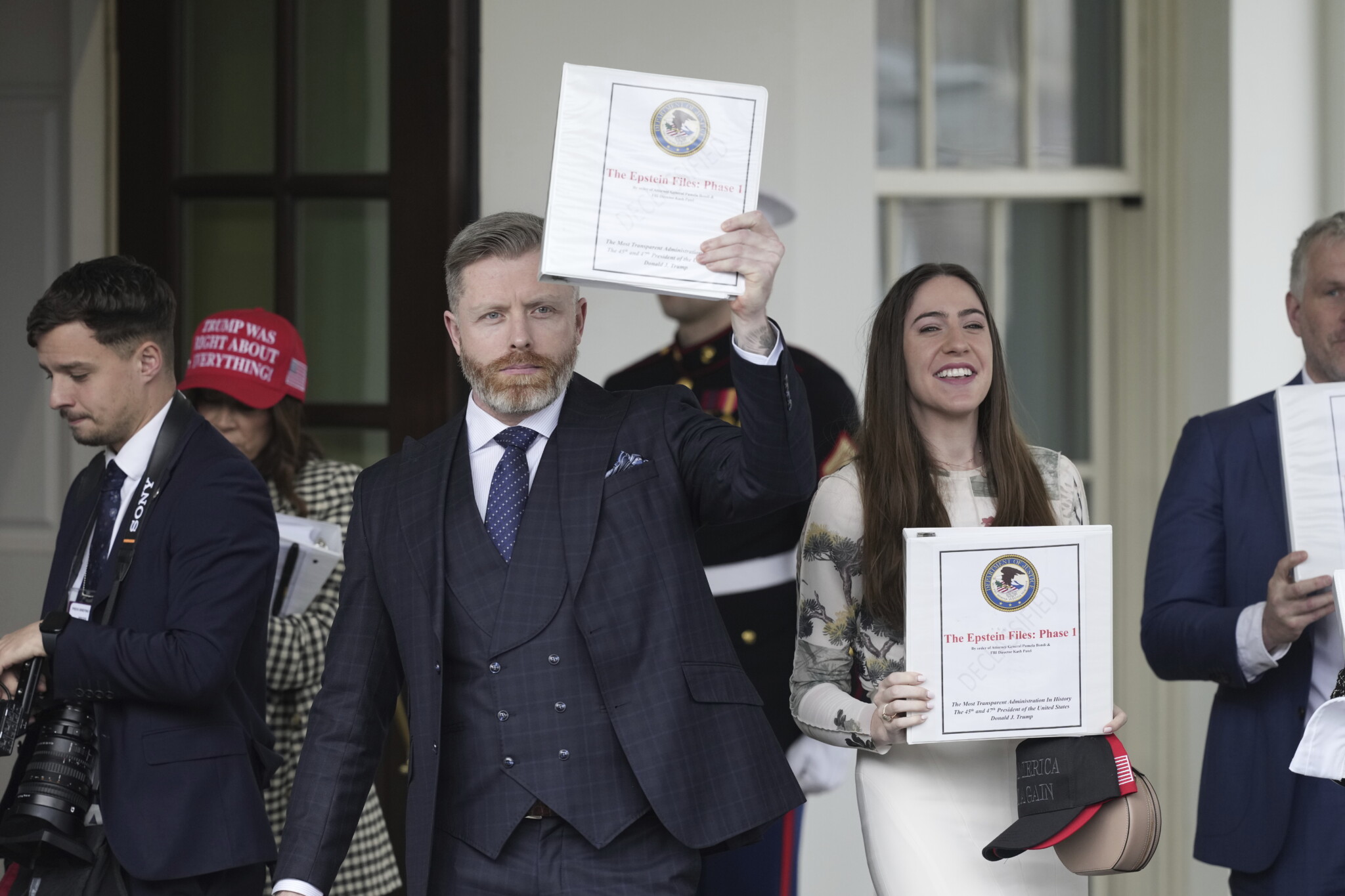A surprising controversy over the Jeffrey Epstein files has created an unprecedented split within President Donald Trump’s political coalition, with longtime loyalists like Steve Bannon and Tucker Carlson openly breaking with the president for the first time in nearly a decade.
The dispute centers on the Trump administration dismissing calls to investigate the deceased American financier and convicted sex offender Jeffrey Epstein’s connections to high-profile figures, describing the matter as “a hoax” despite significant pressure from his base to release related documents.
The Hub’s publisher, Rudyard Griffiths, spoke with editor-at-large Sean Speer to better understand why this issue has fractured Trump’s previously unshakeable support base, and what it might mean for Canada’s ongoing trade negotiations with the United States.
Here are five key takeaways from their conversation:
- The Epstein files have split Trump’s coalition: Unlike previous divisive issues, including impeachment, January 6th Capitol riots, or major policy decisions, the Epstein controversy has caused prominent Trump allies to publicly oppose the president.
- Trump’s defensive response is fueling further speculation about his past relationship with Epstein: The president’s lengthy social media posts attacking critics and claiming they’ve been “conned by the lunatic Left” may be inadvertently strengthening suspicions about a potential cover-up.
- This represents the first signs of internal destabilization in Trump’s political career: After nearly a decade of maintaining unwavering support through numerous scandals, Trump is showing vulnerability with his core base.
- The controversy raises questions about Trump’s reliability as a negotiating partner: Combined with other erratic behaviour like threatening to fire Federal Reserve Chair Jerome Powell, the Epstein dispute suggests potential instability in Trump’s decision-making.
- Canada may now benefit from taking a cautious approach to trade negotiations: The emerging cracks in Trump’s coalition suggest Canadian negotiators might be wise to avoid rushing into comprehensive deals that could trade away sovereignty for market access.
The Epstein files have split Trump’s base in ways that other major controversies could not
The Jeffrey Epstein controversy has accomplished what other major scandals failed to achieve: creating a genuine rift within Trump’s political base.
“We didn’t even see this kind of divergence on impeachment or the January 6th riots or any number of issues where, I think, alone would have caused people to essentially get off the bus,” Speer explained.
The administration’s dismissal of calls to investigate Epstein’s connections to powerful figures has particularly frustrated Trump supporters who viewed this as a key issue the president would tackle. This has led to the unusual spectacle of figures like Steve Bannon and Tucker Carlson, described as “two of the president’s strongest loyalists and allies,” openly opposing Trump’s position.
Trump’s defensive response is fueling further speculation
Rather than defusing the controversy, Trump’s reaction appears to be amplifying it, while taking a defensive stance. The president has taken to his social media platform, Truth Social, to post long screeds about how he doesn’t want their support anymore.
“The president’s reaction to the criticism is only fueling speculation that there is indeed a cover-up that may go even directly to him and his association with Epstein,” Speer noted.
This represents the first signs of internal destabilization in Trump’s political career
The significance of this split cannot be overstated, given Trump’s historically unshakeable hold on his supporters.
“The president and the people around him have taken for granted, as he famously put it, he could shoot someone on Madison Avenue and he wouldn’t lose his support,” Speer observed.
Yet the Epstein controversy has “really snowballed,” creating what Speer characterized as “cracks in what was previously an uncrackable MAGA coalition.”
The controversy raises questions about Trump’s reliability as a negotiating partner
The internal turmoil comes alongside other concerning signals about Trump’s decision-making, including what Speer described as “dangerous musings this week about firing Jerome Powell, the chair of the U.S. Federal Reserve.”
These developments raise questions about the president’s stability as a negotiating partner for international agreements.
Canada may benefit from taking a cautious approach to trade negotiations
For Canadian negotiators currently engaged in high-stakes trade discussions with the Trump administration, these developments suggest a more cautious approach may be warranted.
“We should not be rushing into some all encompassing deal with the Americans trading away national sovereignty for access,” Speer argued, noting that Trump might “renege on all of that in six, 12 or 18 months.”
The emerging instability within Trump’s coalition, combined with his unpredictable behaviour on other fronts, suggests that Canadian officials might benefit from patience rather than urgency in their new negotiations with Washington.
Generative AI assisted in the creation of this article.








